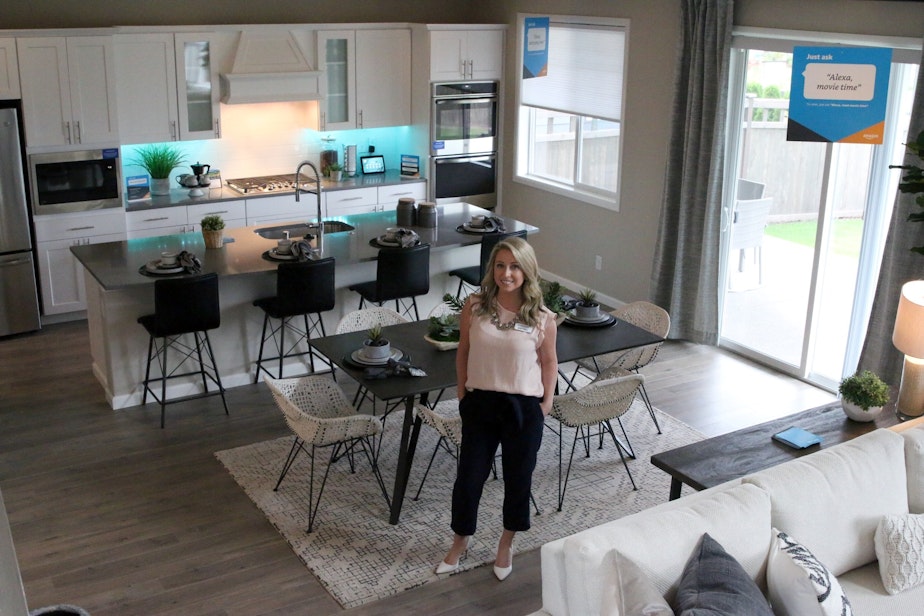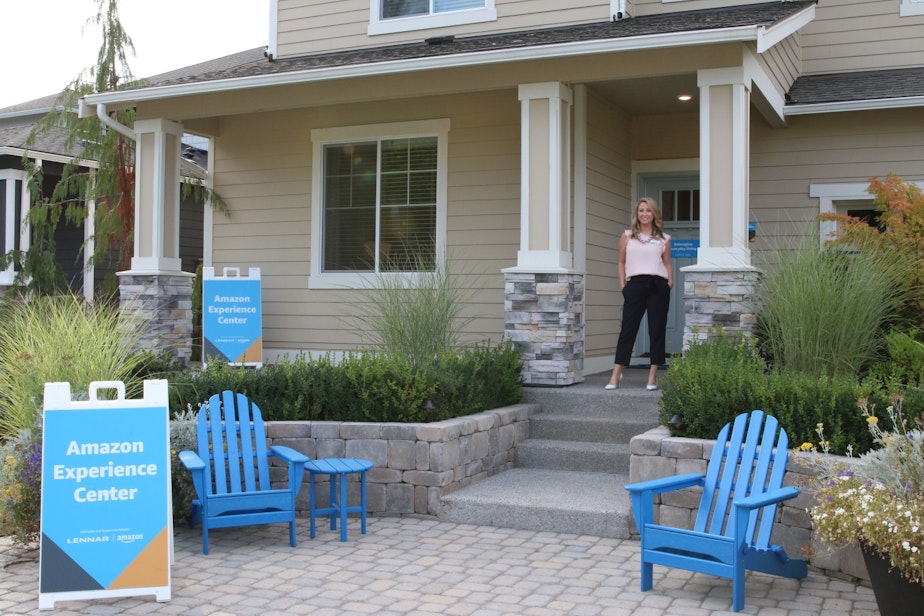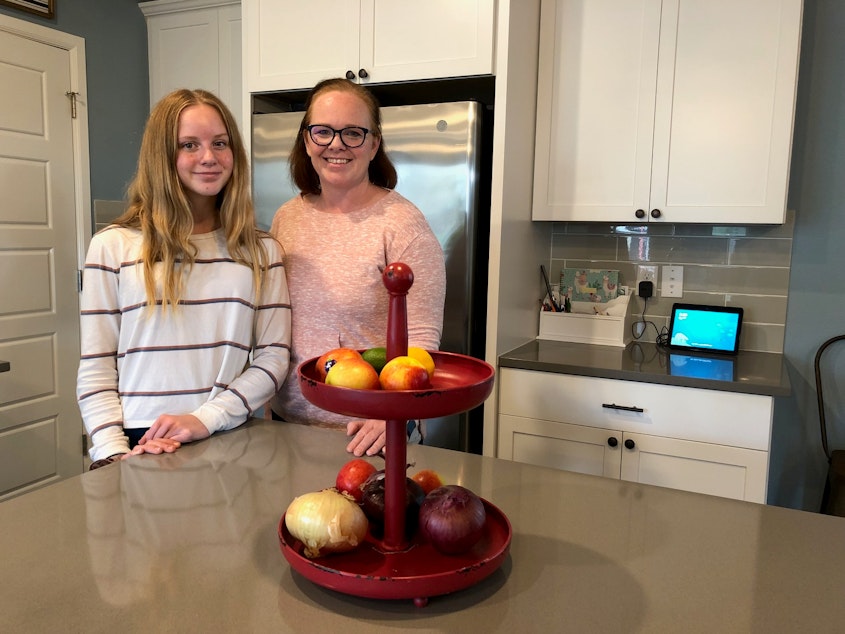There's a neighborhood of Amazon 'smart homes' south of Seattle

This week's Primed podcast explores Amazon's smart home technology. You can listen to the episode here.
In the first part of the story, we baked muffins with Alexa in Amazon's smart home lab.
Here, we talk to people who live in an Amazon smart home development in Black Diamond, Washington.
We also explore some very troubling consequences of having a fully wired home.
Some smart home malfunctions can be poltergeisty — as Carolyn found when Alexa switched on her bedroom lights at 2 a.m. in the morning.
But wiring our homes with smart home technology might have some much creepier consequences, too.
The person who sets up the technology has power over how it gets used.
This can be a problem if a shady landlord uses the built-in cameras to monitor tenants. Or if one partner controls the technology and doesn't give other people in the house access.
Franzi Roesner, who studies smart homes at the University of Washington computer science department, said that technology "can exacerbate existing power dynamics or existing tensions." This can be a big problem if the person controlling the system has malicious intent.
Sponsored
What happens, for example, when one partner can control when the front door is locked or unlocked?
We’re also giving companies access to our most intimate spaces.
This access can allow the smart home to run much more smoothly. As we explored in Part 1, the more access and freedom Alexa has, the better it can anticipate our needs.
But it also means the technology has unprecedented access to every aspect of our lives.
The future’s so bright, you’ll have to lower the (voice-operated) shades
Sponsored
Black Diamond is a teeny town in Washington that’s fast becoming the largest housing development in the state.
Some of these houses are built by Lennar, a developer that partnered with Amazon to build smart homes.

We talked to a few people who live in these homes. Most said they didn’t plan to buy an Amazon-assisted home, but they’ve come to appreciate them.
Kelli Ferguson said she appreciated some of the conveniences, like using voice control to warm up the house on chilly mornings.
Sponsored
When she tried to demonstrate it for us, though, Alexa asked her to "try disabling the skill and then reenabling it from your Alexa app.”
Her children do enjoy using the technology, though.
“I just feel really fancy,” her daughter Macy said. “When I have people over and I say, ‘Alexa turn on the lights.’ I feel like she’s my little servant, or butler.”

Sponsored
In this community, there are smart homes on one side of the street and houses without the technology on the other. The smart homes all have Ring doorbells, with video cameras.
Kelli Ferguson says when she walks down her street, she crosses over to the side without the smart homes.
She wants to avoid popping up her neighbors’ cameras.
Convenience — or surveillance capitalism?
Therron Smith, who also lives in the neighborhood, chose a house without smart home technology.
Sponsored
He works in tech, he said, so he knows the risks.
He didn't like the idea of having cameras in every room, worried that data from his home "could be found and exploited." He said he didn't think that Lennar has bad intentions, but he has some concerns.
“That data’s not just sitting there, empty,” he said. “Somebody’s gonna look at it to leverage it. To try to turn a profit, or try to create an ad, or try to create some revenue.”
Who gets to control the smart home technology?
A fully wired smart home can be a much bigger problem if you’re not the one who controls the technology.
Roesner, who directs the Security and Privacy lab at the UW, thinks daily about how these tools could be used to increase one person’s power over another.
She offered a few examples from a study she did.
One landlord set up security cameras to deter break-ins. His tenant threw a party in her rental home, and a guest unplugged one of the cameras. The camera automatically took a picture and sent it to the landlord, who could see the party in the background.
Roesner also told us about a man who set up the thermostat in his house so it's controlled through an app.
Annoyed that his wife kept turning on the air conditioning, he shut off her access to the thermostat account.
Now, if she complains about the heat, he tells her to turn on the ceiling fan and stand under it.
Technology companies are not responsible for broken relationships that turn abusive.
But Roesner wants designers of smart home technology to remember that they’re not just designing for happy households. They need to think about what happens when couples break up, or landlords and tenants stop trusting each other.
It's not enough to design for convenience. They also need to consider how technology could be used to hurt or control someone, and design with those ideas in mind.
. . . . . . .
If you'd like to listen to the podcast episode or read Part 1 of the series, you can do that here.
Important note: we brought up domestic abuse in this episode. If you or someone you know is experiencing abuse, there are resources that can help you.




